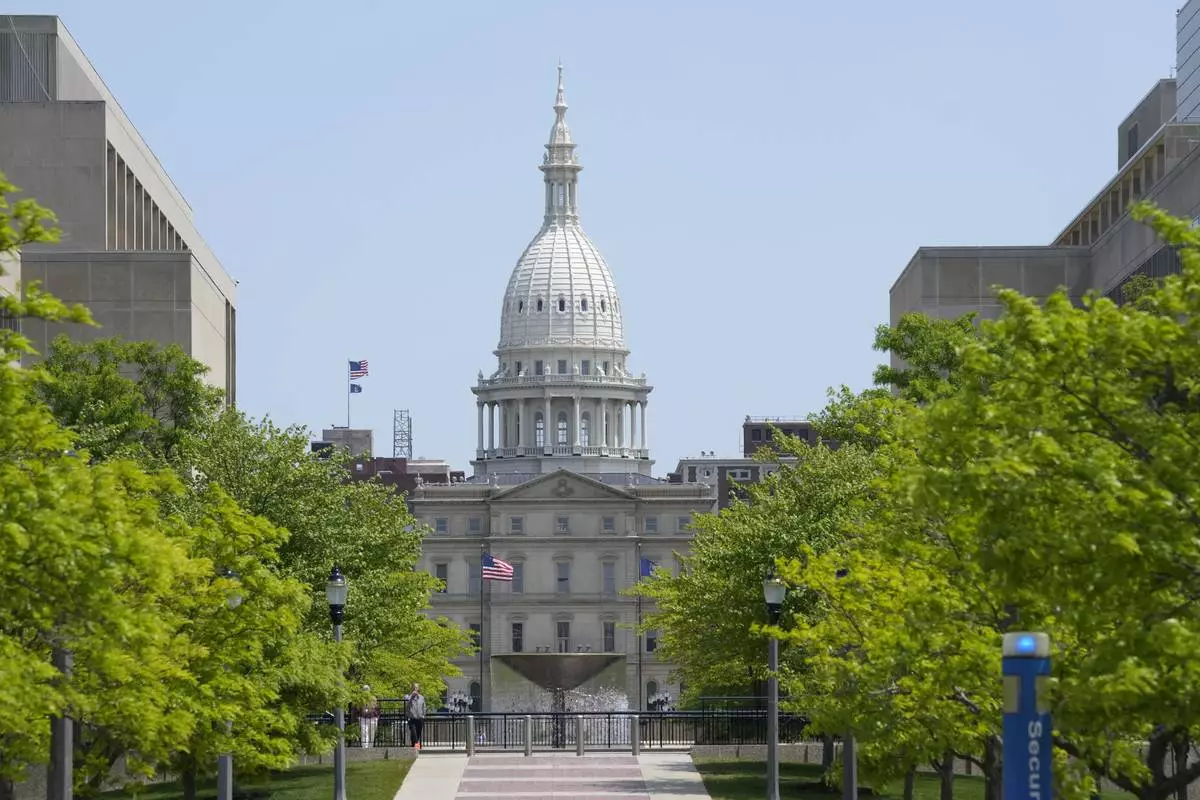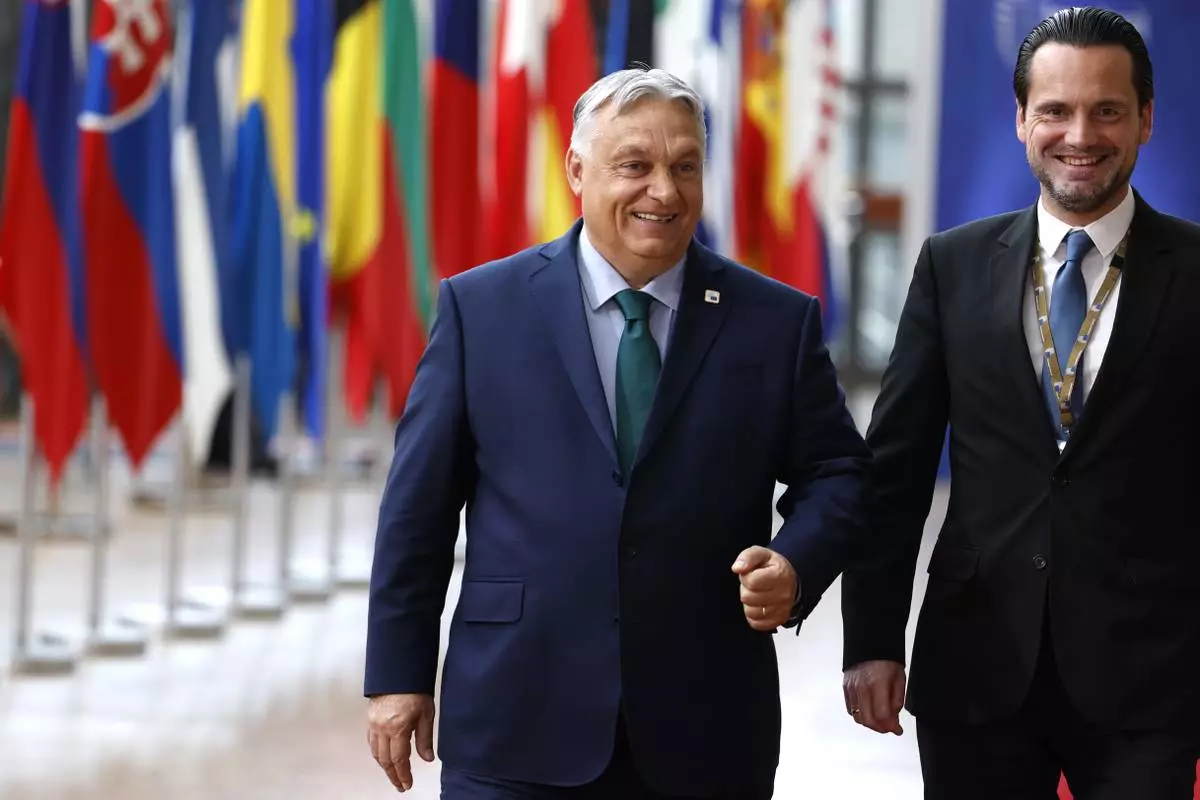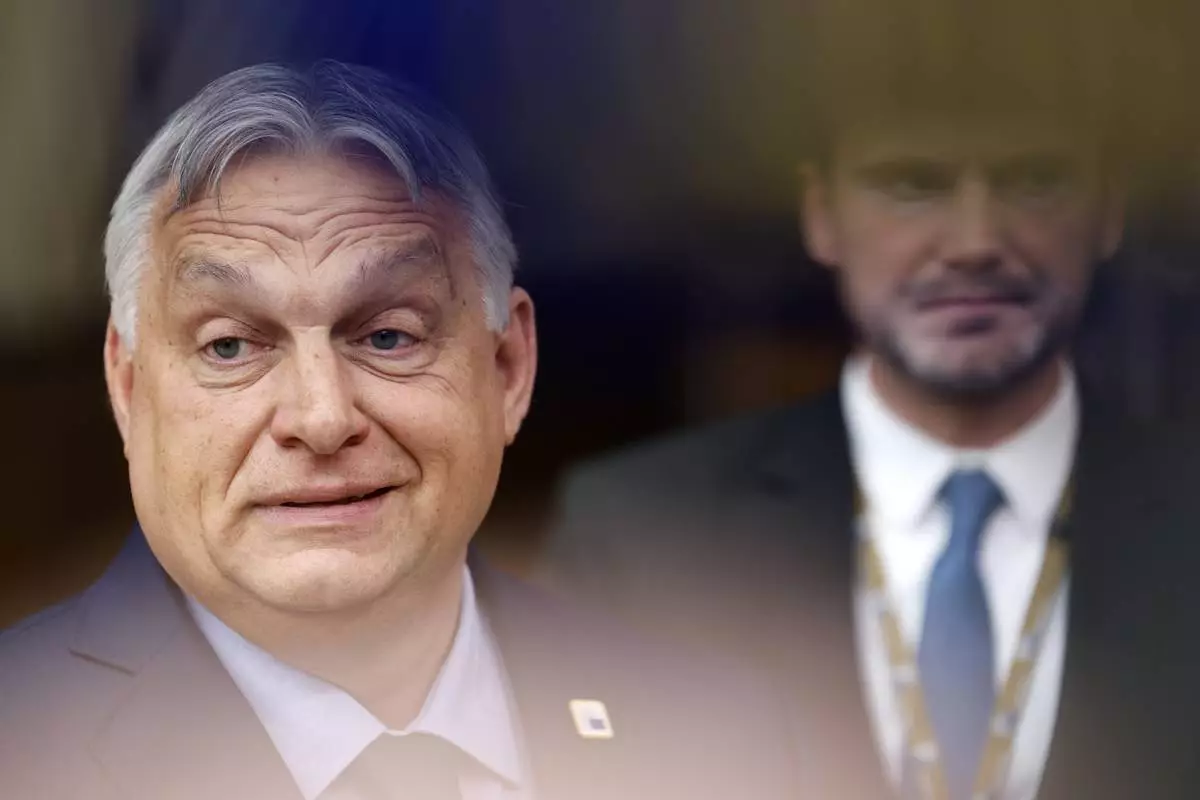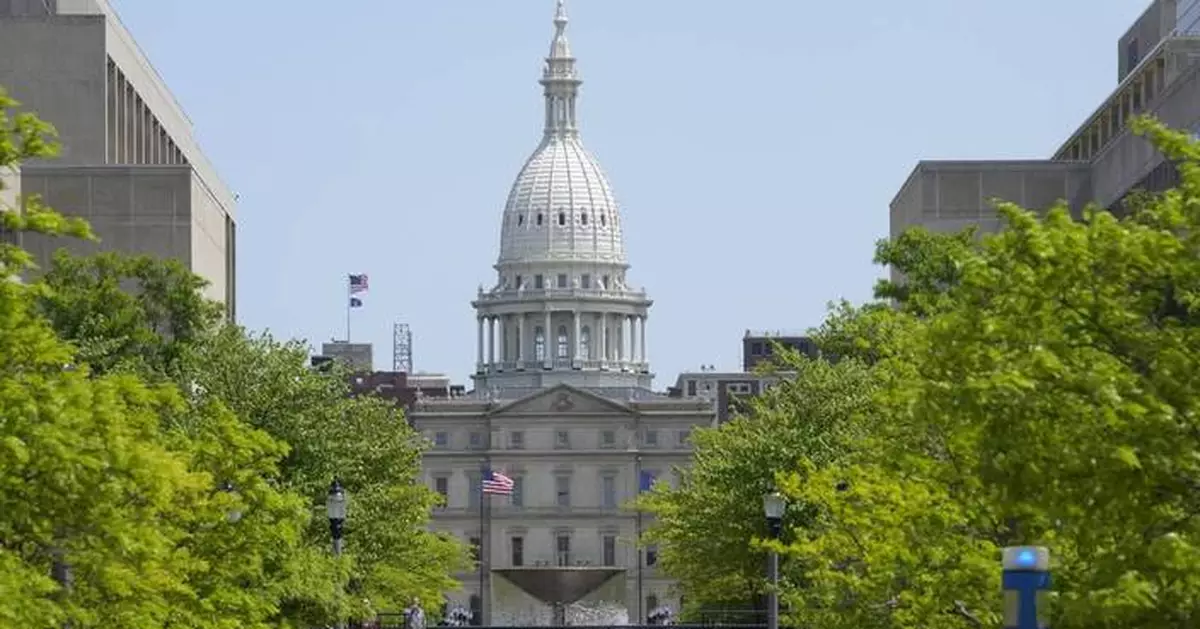LANSING, Mich. (AP) — Lawmakers passed Michigan’s next state budget Thursday after a 19-hour session marked by disagreements among Democrats and school groups, who warned that the original proposal for education spending would lead to layoffs.
The votes to pass the $83 billion budget for the fiscal year starting Oct. 1 came around 5 a.m., mostly along party lines in both legislative chambers, where Democrats hold a slim majority. It now awaits final approval from Democratic Gov. Gretchen Whitmer, who is expected to signd ir.
Budget debates overnight centered on education funding that legislative leaders, the governor and school groups all had different priorities for.
In the end, the approved $23.4 billion school aid budget will provide free community college for all and free preschool for most.
But school groups said it marks the first time in over a decade that the state will not increase per pupil funding for districts. Democratic lawmakers highlighted that there will be savings in other areas, particularly with a reduced pension contribution rate for retirement benefits. These savings are estimated to be $598 million.
The rate reduction will last only one year after a separate bill to make the savings permanent passed the House but failed to receive final approval in the Senate. The decision not to send the bill to the Senate upset Democratic state Rep. Samantha Steckloff, marking a rare public display of division within the majority party.
“A decision was made, without our knowledge, to not send the bill over to the Senate, killing all hopes for this critical funding,” Steckloff wrote on social media. “I'm extremely disappointed and angry that Democratic House Leadership would do this to our caucus and our schools.”
In February, Whitmer had proposed her own $80.7 billion budget concentrated on initiatives such as free community college for recent high school graduates and free preschool for all 4-year-olds. The passed budget achieves the first priority while falling short of the second, with free preschool being guaranteed only for 4-year-olds with families with incomes at or below 400% of the federal poverty level. For a family of four, the cutoff would be close to $125,000 in combined income.
The $59 billion general government spending budget — which combines with the school aid fund to make the total budget — saw similar divisions between Democrats and Republicans with only one GOP state senator, Ed McBroom, crossing the aisle.
Leaders touted nearly $100 million for affordable housing projects and nearly $60 million to create a new Michigan Innovation Fund that will support startup companies. The budget includes nearly $335 million in “enhancement grants,” sometimes referred to as special projects.
Lawmakers were working ahead of a self-imposed July 1 deadline and released the budget to the public just hours before voting on it.
The total $83 billion budget is just $1 billion more than this year’s, a significant slowdown following recent years of large overall spending growth fueled by pandemic-related funds.
Still, Senate Minority Leader Aric Nesbitt called the budget a “spending spree” by Democrats that would cause debt and stick “future generations with the bill.”
The Michigan Association of Superintendents and Administrators, which lobbies for K-12 superintendents and administrators, criticized an earlier draft of the budget in a statement Tuesday, saying that it would “lead to layoffs this fall and in the future” and that “funding for our schools will not be enough to keep up with inflation, rising health care costs, and the ending of federal relief dollars.”
As of Thursday morning, the group had made no statement on the final budget.

FILE - The Michigan Capitol is seen, May 24, 2023, in Lansing, Mich. Michigan lawmakers passed an $83 billion budget for the next fiscal year. Lawmakers disagreed on education funding, stalling the budget passage until the early hours Thursday, June 27, 2024. (AP Photo/Carlos Osorio, File)
BUDAPEST, Hungary (AP) — When Hungary takes over the helm of the European Union on July 1, many politicians in Brussels will have the same thing on their minds: whether populist Prime Minister Viktor Orbán will use the role to further his reputation as the bloc’s main spoiler.
Orbán in recent years has seemed to relish opportunities to block, water down or delay key EU decisions, routinely going against the grain of most other leaders on issues like the war in Ukraine, relations with Russia and China, and efforts to defend democracy and the rule of law.
His public opposition to EU policies and stances has long frustrated his partners in the bloc and pushed him to the margins of the continent's mainstream. Hungary's motto for its presidency — Make Europe Great Again — raised eyebrows for its resemblance to the famous tagline of former U.S. President Donald Trump.
The EU presidency rotates among its member countries, and while the post holds little real power, it does allow countries to put their priorities high on Europe’s agenda.
Now, as Hungary resides over the 27-nation bloc for the coming six months, it will likely keep up its anti-EU rhetoric, said Dorka Takácsy, a research fellow at the Centre for Euro-Atlantic Integration and Democracy.
But the timeline of its presidency — beginning with a lengthy summer break and a transitional period of forming a new European Parliament and executive commission — will give Budapest few opportunities to derail the bloc’s priorities significantly, she said.
"These six months are altogether not that long, which means that ... Hungary cannot do potentially much harm, even according to the critics," Takácsy said.
As Hungary's takeover approached, leaders in Brussels rushed to push through important policy decisions while Belgium was still at the helm. On Tuesday, for example, the EU launched membership talks with candidate countries Ukraine and Moldova.
Orbán has vocally opposed and threatened to block Ukraine's candidacy. His government has also held up EU efforts to supply Ukraine with badly needed funding.
Yet with Ukraine's accession process already initiated, Takácsy said, the most Hungary can do now under its presidency is delay further steps toward its EU membership, a process that in any scenario is likely to take many years.
“All the meaningful steps from the European side regarding Ukraine were already done," she said. “(A Hungarian) delay, according to most European leaders, is already calculated and being taken into consideration as if it’s something which is most likely going to happen.”
Orbán has long been accused of dismantling democratic institutions and violating the EU's standards on the rule of law, leading the bloc's legislature in May to call for the presidency to be taken out of Hungary's hands entirely.
In a resolution, the EU parliament argued that democratic deficiencies raised questions of “how Hungary will be able to credibly fulfill this task in 2024.” Two years ago, the European Commission froze billions of euros in funds to Budapest over concerns about democratic backsliding by the government.
But some Hungarian officials have stressed that they plan to act constructively during their presidency. Last week, Hungarian minister for EU affairs János Bóka told reporters that “we will be honest brokers, working loyally with all Member States and institutions.”
“Carrying out the functions of the presidency is our obligation, but we see it primarily as an opportunity," Bóka said. “At the beginning of the new institutional cycle, we can initiate a debate and set the agenda on issues that are important to us.”
Among the issues that Hungary has prioritized in its seven-point program is the enlargement of the EU in the Western Balkans for countries like Serbia, North Macedonia, Montenegro and Albania through a “merit-based” procedure.
Budapest has also vowed to strengthen the EU's external borders and step up against illegal immigration, and to address “demographic challenges” that involve an aging population in Europe — two priorities that reflect Orbán's image as a staunch opponent of immigration and defender of family values.
But after years of campaigns portraying the EU as forcing unwanted policies on Hungary — Orbán has repeatedly compared membership in the bloc to more than four decades of Soviet occupation of his country — he may find it difficult to restore goodwill among his EU partners.
“The Hungarian government has been using the image of Brussels as a punching bag,” Takácsy said. “Now it’s somewhat difficult to communicate that for these brief six months, we are basically the Brussels that Hungary is waging war and a freedom fight against.”
With some words of advice for Orbán before Hungary assumes its role, the prime minister of Belgium said the position “does not mean that you are the boss of Europe.”
"The presidency means that you're the one that has to make the compromise,” Alexander De Croo said to reporters in Brussels on Thursday. “Being in the position where you have to make the compromise is an interesting position to be in at least once in your life, so I can definitely recommend it to Mr. Orbán.”

FILE - Hungary's Prime Minister Viktor Orban, left, arrives for an EU summit in Brussels, June 27, 2024. When Hungary takes over the helm of the European Union on Monday July 1, 2024 many politicians in Brussels will have the same thing on their minds: whether populist Prime Minister Viktor Orbán will use the role to further his reputation as the bloc’s main spoiler. (AP Photo/Geert Vanden Wijngaert, File)

FILE - Hungary's Prime Minister Viktor Orban, left, arrives for an EU summit in Brussels, June 27, 2024. When Hungary takes over the helm of the European Union on Monday July 1, 2024 many politicians in Brussels will have the same thing on their minds: whether populist Prime Minister Viktor Orbán will use the role to further his reputation as the bloc’s main spoiler. (AP Photo/Geert Vanden Wijngaert, File)












